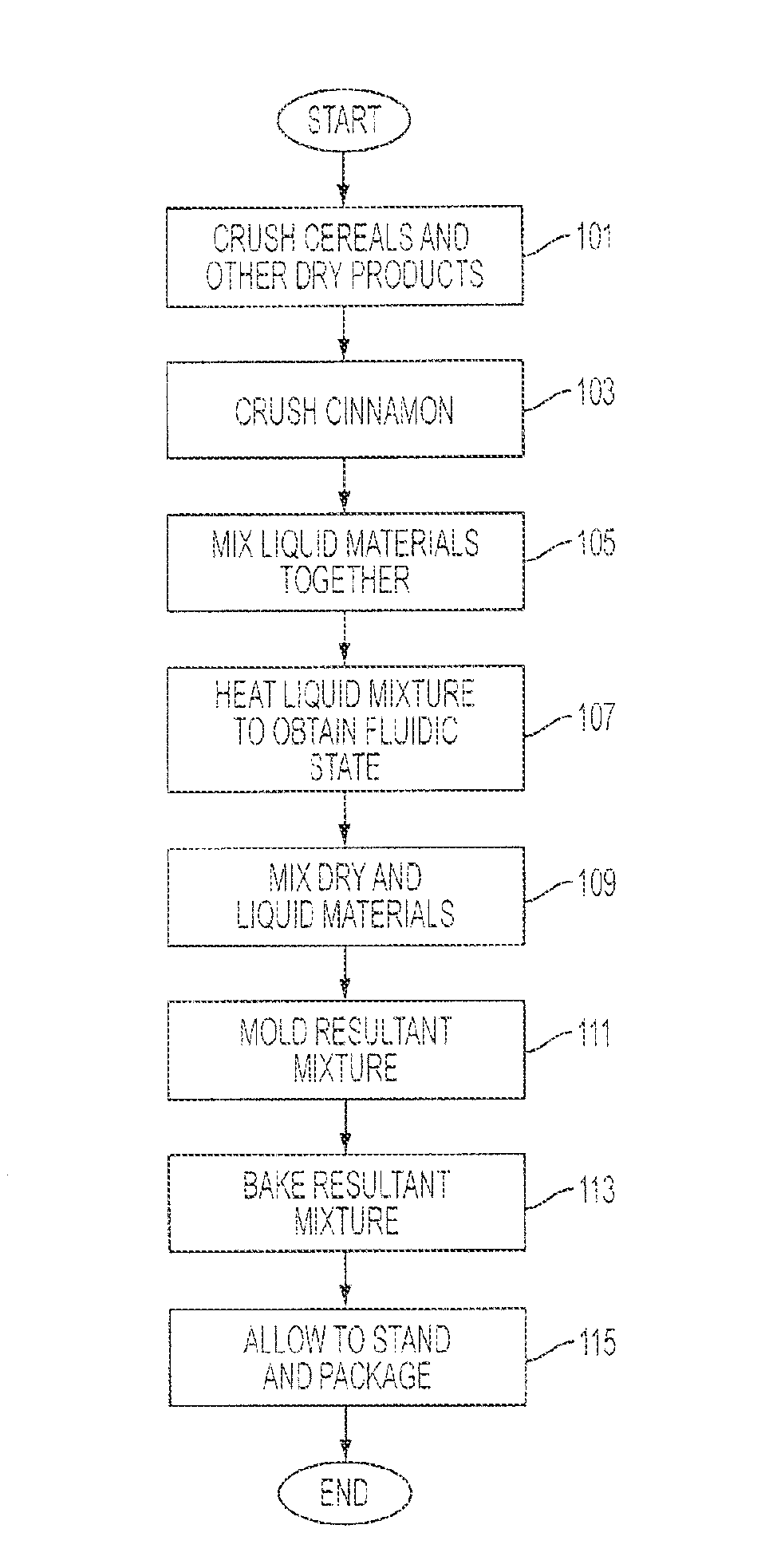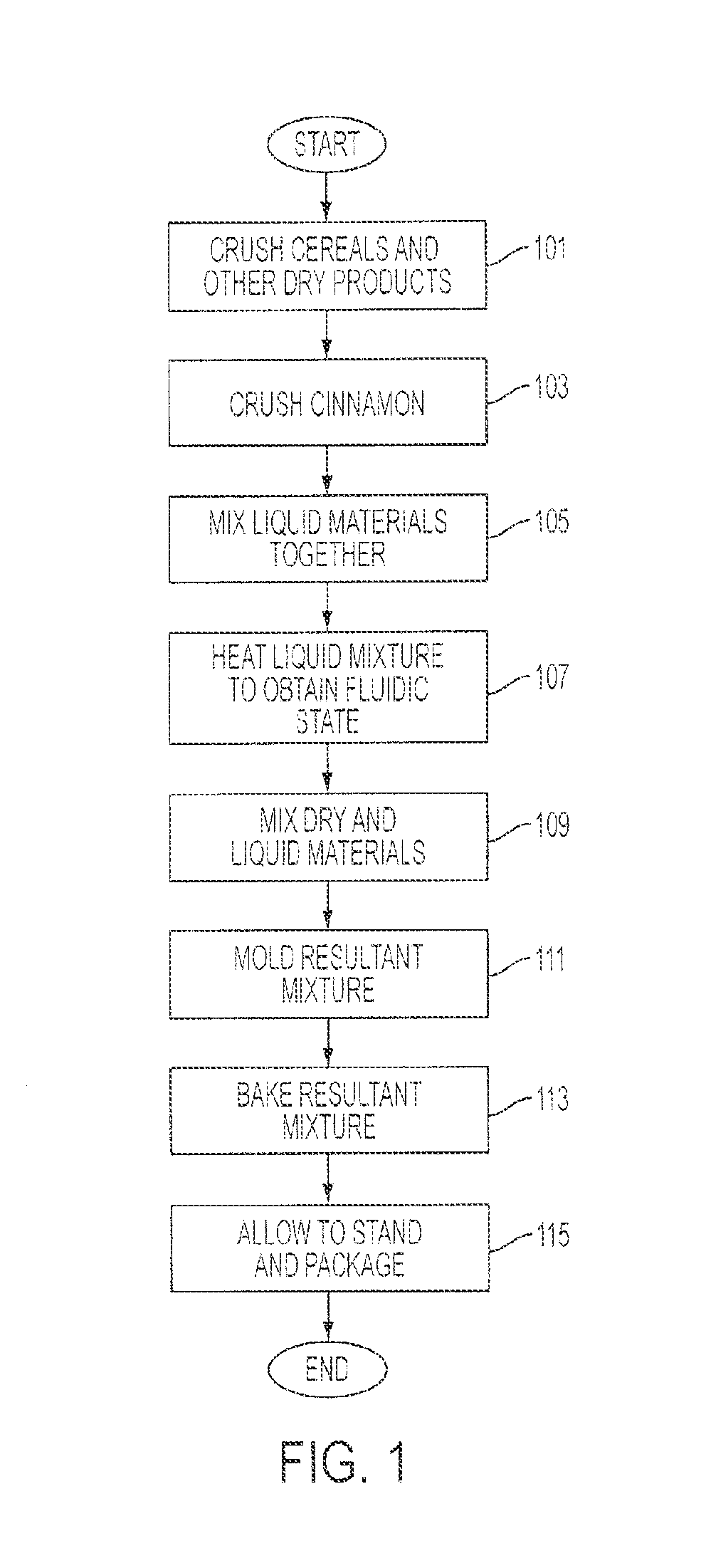Certain materials when consumed in relatively small quantities are “medicinal” while consumption in larger quantities can be detrimental (e.g., red
wine).
However, the inclusion of cinnamon in these foods as a flavoring is in a relatively small
dose.
While there may be some limited health benefit from
ingestion of this cinnamon flavoring—and not
health benefits—is the primary purpose of its inclusion in these products and in most the percentage of cinnamon is insufficient to provide for any meaningful benefit without undue consumption of the
food item.
Such a concentrated amount, if it was to be used as a flavoring, would often be overpowering for many traditional cinnamon flavored food items and give them an unpleasant taste with a heavy bitterness or tartness.
Cinnamon's use as a flavoring is well understood and while this can provide for a pleasant taste, the amount used for flavoring is generally in quantities either so limited as to not have a significant medicinal benefit when a normal amount of the foodstuff is consumed (for example one or two standard servings), or, if the foodstuff was consumed in greater amounts, the negative
impact from consuming such a large quantity of the other materials in the foodstuff would generally counterbalance the medicinal benefit of the consumption of cinnamon and may introduce other health risks such as those present from consumption of an overabundance of calories and / or fat compared to the recommended
daily intake for those items.
As much of the
sweetness is provided by refined sugars, eating large quantities of these foods will generally serve to counteract some or all of the cinnamon benefits or possibly
pose undesirable health issues (including dental issues) as well.
However, a foodstuff using cinnamon as a flavoring generally includes only a small percentage of cinnamon and also includes a relatively large amount of fats, sugars and other undesirable food elements which would counteract the nutritional benefit as an
appetite suppressant and increase
blood sugar by adding additional
sugar to the diet.
Therefore, these products do not serve as an
effective method for cinnamon delivery.
The taste and consumption profile of these chewable tablets does not attempt to provide for a desirable consumption experience, but to disguise the “medicinal” nature of the supplement in a form that is still essentially a tablet.
While this can make the supplement a desirable treat or snack and increase willingness to consume the supplement, in many cases the food substrate is detrimental to the user.
In the case of such candies, the benefit of taking the supplement may be present, but consumption of the candy may have other negative effects (such as introduction of a large amount of
refined sugar, fat, or
caffeine).
Cinnamon and a number of other supplements (such as but not limited to ginger), can also have other significant problems in being used with the above
food delivery systems.
For one, they have very strong tastes and therefore when provided in a chewable form, the taste can overwhelm any flavoring designed to cover them up or provide for an unpleasant interactive taste.
Further, the benefit cinnamon provides relates directly to
food consumption and
digestion and is lost if the cinnamon is provided with too significant a food substance because the carrier, in effect, counteracts some or all of the cinnamon's benefit.
Therefore, including cinnamon in a
solid chocolate,
high fat, or
high carbohydrate carrier could, in fact, provide little to no benefit or even be detrimental to the desired purpose of taking cinnamon in the first place.
The issue with regards to providing relatively large quantities of a material which has a strong taste is not unique to cinnamon.
However, like cinnamon, these have traditionally only been used as flavorings for foods that are relatively high in calories, fats, and / or sugars or have been provided in a pure medicinal form (such as a tablet) for consumption of larger quantities due to their taste.
While many fruit flavors are pleasant, the need to use them in extracted or concentrated form to allow them to provide medicinal effect can often result in the taste being overpowering and unpleasant.
 Login to View More
Login to View More  Login to View More
Login to View More 

